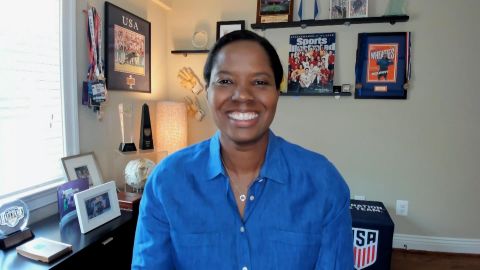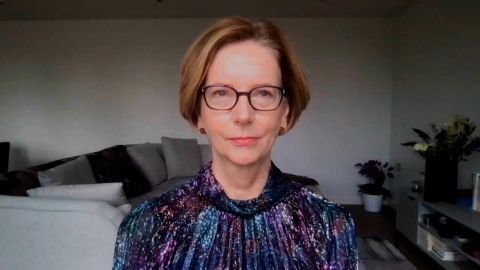Read Transcript EXPAND
JULIA GILLARD, FORMER AUSTRALIAN PRIME MINISTER: And I think it is important for everyone to understand that school closures happened right around the world and in our own nations, whether that’s the U.S. or Australia or anywhere else. We were able to find some ways to maintain educational continuity. It’s been hard. Homeschooling is hard. But we have got the technology you and I are using now. In so many parts of the world, in developing countries, this isn’t available. And maintaining educational continuity is therefore far more difficult. And we know from earlier health crises like the Ebola epidemic that, when schools close, the impact on children can be profound in a lot of ways. For many, school is a place of safety. It provides a nutritious meal. And we also know, for girls, that they’re at risk that, when schools close, they never make it back, that they end up subject to early marriage or going into child labor. So, the Global Partnership for Education has been hard at work with developing countries to try to not go through that cycle. But we need to do more, which is why we are gathering in London, obviously, virtually and some in person, but gathering next week to try and raise $5 billion U.S. dollars to invest in this task of education.
BIANNA GOLODRYGA: Over 20 million girls may never return to school. Why is that number so stark, in relation to boys?
GILLARD: I think the number is stark for a few reasons. I mean, we are talking about families in very impoverished circumstances. Many of them make very difficult choices about how to keep the family up and running and everybody fed and those sorts of things. And in those situations, there can be a priority put on the education of boys. There can be pressures for adolescent girls in particular to be married off, and married off very young, or there can be pressures for girls to stay at home, to perhaps through the domestic labor or perhaps some subsistence agriculture, and thereby free up another family member to go and do something that’s income-earning for the household. So the pressures are poverty. They’re cultural. There are many things that are going into that. And you can’t say that the pressures in every individual family are the same, which is why, through the Global Partnership for Education, we’re very conscious that change has to be community-led, nation-led. There’s not a one-size-fits-all change model here. But it does take resources and it takes global attention. And that’s what we want to galvanize next week.
About This Episode EXPAND
Selina Wang; Briana Scurry; Julia Gillard; Poorna Jagannathan
LEARN MORE



